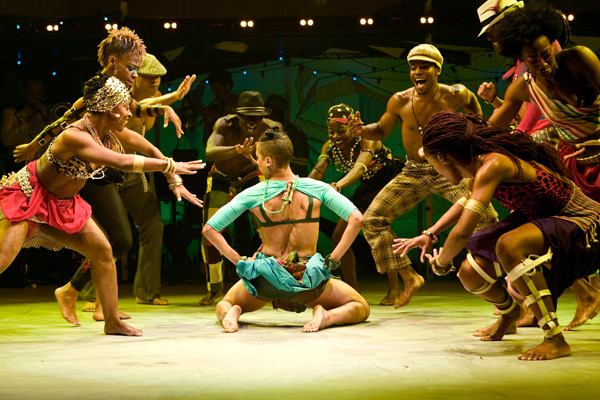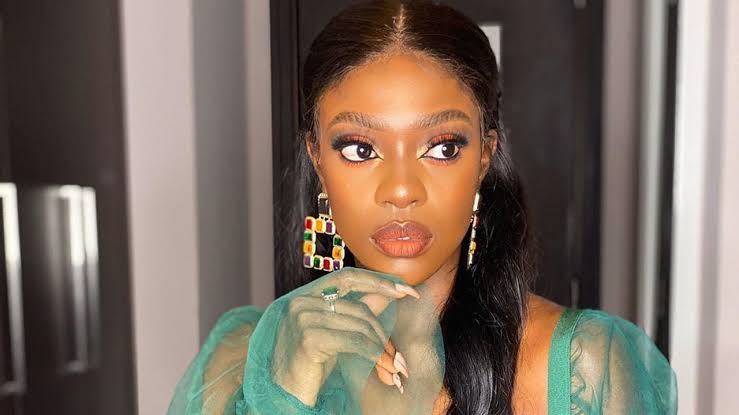
Odion Iruoje is one of Nigeria’s most accomplished music producers. He played key roles in the successes recorded by the weird one, Fela Anikulapo-Kuti those early years of the musical genius. Today, however, Iruoje is greatly disappointed at what is being churned out as Nigerian music, which, according to him, is neither African nor creative. He also blames the electronic media for the promotion of mediocrity called hip-hop and the gradual extinction of indigenous musical genres like Apala, Juju, Urhobo, Rock, Goje, Swange, Atilogwu, e.t.c. TAYO ADELAJA met him.
THERE was that nostalgic look in his face as he went down memory lane. At some point, the reporter could see him glowing; yet, almost immediately after, it was replaced with regrets, disappointment and anger.
How could the nation that produced such greats as Fela Anikulapo-Kuti, Sunny Ade, Haruna Ishola, Victor Uwaifo, Osita Osadebe be embracing the junk that is now ruling the airwaves, he asked?
But when the topic returned to Fela, his face lightened up and he was full of life again.
Iruoje said that he became friends with the late Fela while working with the then renowned music production label, EMI. The much-perceived notoriety of Fela had apparently spread to the ears of the owners of EMI. Without having personal knowledge of any noxious thing that the musician must have done, the management of EMI had made up their minds to shut the door against Fela if he ever made an attempt to appear at their doorstep for a recording deal.
They were wrong, Iruoje said. The musical genius of Fela was simply irresistible. When the musician eventually came over and the management listened to him play, they not only pleaded with him to do the recording the same day but also bent over backwards to accommodate Fela’s eccentricities!
Iruoje said: “When he created his new sound ‘Afrobeat’, Fela came to us at EMI because of his vision of making it a world brand and he saw only EMI as the recording company that could help him attain that goal.”
Iruoje recalled that the day Fela came to EMI, the Managing Director of the company summoned him and told him that the eccentric musician was at the gate and that he did not want to see Fela. “I asked why he did not want to see Fela, but the MD insisted that he was not interested in seeing him. Fela repeated his visit to EMI thrice, and I spoke to the MD to give him a chance, but he declined. He asked me to take Fela to my office if I so desired. I took him to my office and we discussed.” Iruoje sat back on his chair and sighed with fond memories. He continued: “Fela told me that he had a new song that he wanted us at EMI to release. I asked him, why EMI? He looked at me straight in the eyes and said, ‘I know that EMI is worldwide’. We discussed at length and he agreed to release the record without a contract until after three months. Such was his confidence in his work.”
With that open cheque, a confident Iruoje reported the development to his boss who expressed cautious optimism.
“I reported back to my MD. He told me that though the arrangement was fine, but he hoped that there would not be a problem later, because he did not want any problem. He told me bluntly that I would be responsible for any problem that might arise from the deal since I was the one who stuck my neck out.
“I was at his place for rehearsals and I booked an appointment for him a few days after in our studio as I was confident of our in-house engineer.”
The story changed when Fela came for rehearsal. Iruoje said: “To be candid, in my life, that day, I heard the kind of sound I had never heard in my entire life. Fela was something else when it came to musical instruments. He was a genius. I hurried out to call my MD so that he could listen to the beautiful music that was coming from Fela.”
A smile seeped into his lips while he recalled the reaction of MD when he arrived. His voice rose: “My MD was not only amazed, he begged me to record Fela right away, although it was supposed to be a mere rehearsal. My MD exclaimed, ‘What! Can we record him now? Let us record now before he changes his mind. Do the recording right away. Odion, this music can’t wait, let’s do it now.’
“We recorded immediately and my MD did not leave the studio throughout the session.”
But there was more to the eccentricity of Fela, or else he would not have been the abami eda (weird one).
Iruoje recalled again: “After the recording, we wanted to sign a contract with Fela immediately, but I was taken aback when he refused to sign any contract. Rather, he told us that all he wanted was for the music to be played round the city of Lagos in a van on the day of release. Then, he would come back to discuss contract with us three months after the release. When I reported it to my MD, he exclaimed, “I can’t believe this. What a deal?”
Iruoje continued: “We did as he requested on the day we release the record and the reaction was like wild fire on a dry grass. Our factory became a beehive of activities and we could not match the demand for the record immediately.”
The success now a reality, the abami eda then played his own card. Iruoje said: “The three months expired on a Sunday, and he came into our office on Monday. We went to see my MD, and on getting there, Fela sat on the MD’s table and said, ‘na my turn now. I gave you three months and added jara now. Abi I no try?’
“Fela stood up and opened the office window. He pointed to my MD’s car at the parking lot and asked, ‘who owns this car?’ I told him the owner. He told us that as part of his demand, he was going away with the car. He also asked for the van we used on the day of the release for his record, because, according to him, he needed it to convey his instruments. He requested for a new and complete instrument.
“At first, I thought he was joking but he was dead serious. I spoke to him to let us buy specially manufactured bass guitars for Afro-beat and he agreed. The guitars were ordered from London. He asked for a huge sum of money too. He got his request and went away happily.”
According to Iruoje, the music that Fela played in his later years was not Afrobeat. He insisted that this was so because, according to him, Fela did not put his acclaimed musical genius into his music in his later years having been blinded by the zeal to “yab” government.
His words: “The real Afrobeat seemed to have almost gone into oblivion. Jeun Koku was the beginning of Afrobeat and it developed. What he played in Jeun Koku was not exactly what he played in Ojuelegba or Beautiful Dancer because he was developing it. What the new generation knows as Afrobeat is not the Afrobeat that I did with him.”
For emphasis, Iruoje said: “What he played in his later years was not the Jeun Koku, Don’t Guard Me, Beautiful Dancer, Ojuelegba or Na Kpoi style. The rhythm changed and the arrangement was different. The only two people who have played something close to Afrobeat are Femi and Seun Kuti.”
Iruoje paused and after a few minutes, he added: “Fela in later years became a social critic. He was doing protest music, using his music to oppose the perceived injustices of the time. He departed radically from the original music he created.”
Speaking further on Fela, Iruoje said: “He was a legend in terms of music, especially the arrangement of the horn. He was the only person we can credit the origin of a music genre, Afrobeat, to. Who created Reggae? Who created Rock? Who created Calypso or even Highlife and R&B? Your guess is as good as mine. Just as we can trace classical music to great names like Mozart, Beethoven, Schubert, Handel and Bach, so also Afrobeat can be traced to Fela. Sincerely, he could have been greater than Bob Marley and James Brown, but he abandoned his music mid-way and moved onto politics. He was not playing Afrobeat, but what he himself called African Beats and it is quite monotonous. He could have surpassed all of them if he had stuck to his originality. Lady started the monotony, he was just talking, yabbing and no longer interested in the music as it should be, and that is Afrobeat as created by him.”
An experience that Iruoje would not forget in a hurry was the day Fela not only turned him down but also embarrassed him after he came up with plans that he thought were brilliant, which would transform both of them into multi-millionaires.
He said: “In the last years of his life, I approached him and said, ‘Fela, you have succeeded in creating a new beat and right now, I want us to go back to the studio and play Afrobeat properly, the way we did it back in the days. I want us to make money. In fact, I want to make my money.’
“I added: ‘Fela, all this stuff you’re singing will not make money for us. It will not get us anywhere. This is not the Afrobeat that can make money. It’s not the Afrobeat that excited people and brought you into the limelight. Let’s get back to the basics and start playing the real music. Let’s make money with Afrobeat.’ His response shocked me. He said, ‘Who told you I want to be a millionaire?’ “
Talking about the origin of Afrobeat, Iruoje said: “Afrobeat was a development of Highlife. It was a radical change from Highlife. He was a disciplined musician and well read. He graduated at Holy Trinity School of Music in the UK. He was unique in his ways. He was very dynamic in his actions. Working with him was great. You just learnt to work with Fela. He came up with unique things, he had a high sense of humour and was very knowledgeable. He brought everything into his music. If you’re a disciplined person, he is the best person to work with.”
Iruoje also spoke about reported claims by Orlando Julius to have been the originator of Afrobeat, saying: “I’ve spoken about this before and will never stop talking about it. I also replied him when I heard that Orlando Julius was claiming to be the originator of Afrobeat, which is a big lie. Fela created Afrobeat. He should stop laying claim to what does not belong to him.”
Iruoje believes wants the Federal Government to recognise and honour Fela for his works.
“He should have been honoured long ago. He deserves it. He put Nigeria on the music world map and that is no mean feat. But because he was anti-government, nobody is recognising him and his works. But the people are remembering him, especially at the grassroots – and that’s very important.”
Iruoje said that EMI and his days as producer were not about Fela only. He also produced the records of such greats as Sonny Okosun, Ayinla Omowura, Ofege, Wrinkers Experience who did Fuel for Love.
He said: “In fact, what you call galala today took its root from Ofege’s music and dance known as Afro Rock.”
Odion Iruoje born on 26th September, 1939, is sad about the state of the Nigerian music and the focus on hip-hop which he describes as ridiculous “because we are imitating the culture of the whites by imitating their music, thus killing our musical heritage.”
He spoke on the hip-hop culture: “We don’t have musical idioms again. Our rich music is dying. What has happened to juju, Apala, Sakara, Atilogwu, Goje, Swange etc? The electronic media is promoting this hip-hop which is just an imitation of the white music. Many don’t really buy the tapes or CDs despite the huge promotion by the electronic media. Sadly, our cultural heritage in terms of music is dying due to the promotion of foreign music. They play our local music on radio without any mention of the producer and artiste. How many times have you heard our music on BBC, VOA, and French Radio? Even as popular as Fela is, how many times has he been aired on BBC and other foreign radio? In Zaire, Cameroun and other African countries, they play more of their music. It is only Ghana that is imitating Nigeria. It is sad that our electronic media is killing our indigenous music. Call my daughter and ask her about Apala, Juju or other Nigerian music, she doesn’t know. Ask her about 2face, she will not only sing his song but also dance his style. Look, I’m talking about cultural degradation. Our musical culture is dying. Even in government functions, the hip-hop stars are invited to perform, thus promoting the imitation of foreign music, killing what is ours! What is the NBC doing about it? Nothing!”
He added: “If we have developed our musical idioms, we could have made money in that industry more than petrol.”
Odion also took a swipe at talent hunt programmes by the various corporate organisations, saying: “What is original in the talent hunts? The person that wins the hunt is normally the greatest imitator. What do they have? Do they create anything? What originality? It is all celebration of mediocrity. The judges of these talent hunts too know next to nothing about the issue they are presiding over. It is sad!”


















